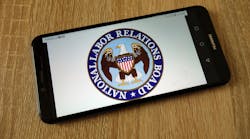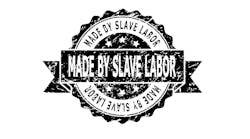NEWS ANALYSIS
The Biden Administration exploded out of the blocks when it came to making fast-paced changes in labor policy and personnel, but now must deal with a potential obstacle strewn in its path by the President’s premature firing of the General Counsel of the National Labor Relations Board (NLRB).
The Supreme Court may end up finding that he moved too hastily and violated the National Labor Relations Act (NLRA) when he removed Peter Robb as the board’s top lawyer. Unlike other top attorneys at federal agencies, the NLRB chief counsel is nominated by the President and approved by the Senate to serve a set four-year term under the NLRA. Robb’s term is not due to expire until this November.
Biden’s staff demanded Robb’s resignation and when he refused to step aside, they arranged for him to be directly fired by the President. According to the agency’s enabling law, the NLRB General Counsel can only be fired “upon notice and hearing, for neglect of duty or malfeasance in office, but for no other cause.”
Also, unlike other federal agencies, the NLRB General Counsel plays a leading role in making policy. Most board policies are not laid out through rulemaking proceedings initiated by the board member. Instead they are made by the board members deciding on individual cases brought before them by the NLRB’s regional directors, attorneys who act under the direction of the GC.
Almost immediately after firing Robb, Biden also fired his second in command, Alice Stock, who had by then become acting General Counsel of the board, and replaced her with one of the NLRB regional directors, Peter Sung Ohr, who formerly headed the board’s Chicago office and who lost no time in beginning to countermand many of Robb’s policy declarations.
Since then, one employer’s legal representatives already have urged the board to dismiss an unfair labor charge that had been lodged against their client, asserting that the agency is unable to legally prosecute the matter in light of Robb’s firing.
They pointed out to the board the turmoil that took place in 2011-13, when the Acting General Counsel Lafe Solomon conducted his duties while waiting for a Senate confirmation that never took place. The Supreme Court ruled in 2017 that Solomon had improperly served as NLRB GC during that time, casting a shadow over the hundreds of cases Solomon and the NLRB Regional Director had handled under his supervision during that period.
Around the same time as Robb and Stock’s firings, Biden also elevated the board’s only Democrat member, Lauren McFerran, to serve as NLRB chairman, replacing Republican John Ring who will continue to serve as a board member. One board position is open and available for the president to nominate a new member. The other three current board members are all Republicans. The next opportunity the President will have to name a new Democrat member is when current Republican member William Emanuel’s term expires on Aug. 27.
“These quick and unprecedented actions—Robb’s ouster was the first time an NLRB GC had been terminated by an incoming President—signals a sharp leftward turn for an agency seemingly intent on unwinding Robb’s and the majority Republican board’s achievements over the last four years,” say attorneys Chad M. Horton and Gary Simpler of the Shawe Rosenthal law firm.
One of Ohr’s first actions as the NLRB’s Acting General Counsel was to withdraw a case that has arisen from a Robb memo directing the regions to bring individual cases to the board involving “neutrality agreements.” Under these an employer allows organizing activities or negotiates terms of a collective bargaining agreement before the union is lawfully recognized. Robb intended to encourage the board to lower the threshold for finding unlawful support of the employer for the not-yet-unrecognized union.
Forging a New Union Ally
On Feb. 1, Ohr distributed a memo to NLRB staff that withdrew 10 memos that were earlier distributed by Robb. Deemed to simply be unnecessary were Robb’s memos laying out what was permissible for employers to include in employee handbooks. Ohr also withdrew other Robb memos for having been “inconsistent” with what he deems to be the board’s goal of encouraging collective bargaining and protecting workers’ rights.
For example, also withdrawn were Robb memos characterized as lowering the bar for prosecuting unions, plus other memos that increased the amount of detail unions were required to include in financial notices and others that sought to impose new rules on unions collection of member dues and nonmember fees.
Also overturned by Ohr were several memos that targeted unions for greater scrutiny and increased enforcement of their obligations to their members. Although not widely known, it is possible under the NLRA for unions to be subject to NLRB enforcement for engaging in unfair labor practices and failing to meet legal obligations to their members.
One of Robb’s memos said unions that put forward a “mere negligence” defense to a duty-of-fair-representation charge by showing they maintained reasonable procedures for tracking grievances, and classified as unlawful arbitrary conduct a union’s failure to respond to inquiries by members who filed grievances.
Another withdrawn Robb guidance required NLRB regional directors to bring cases to the board that could lead to easing the burden of proof for employees who brought cases against their union accusing the union of violating its duty of fair representation. Ohr also withdrew a Robb directive instructing regional offices to promote cases requiring unions provide detailed explanations of membership dues and other obligations in cases involving union members challenging union fees.
If you were under the impression that the NLRB was intended to act as an honest referee, balancing the interests of employers and organized labor, that’s not how the unions and their political allies like Ohr see it.
Reacting to Robb’s firing, Teamsters Union head James P. Hoffa said, “Hardworking Americans want the opportunity to join together to negotiate for fair wages, safe workplaces and a secure retirement. Robb would have hampered that, just like he did during the Trump administration, so he had to go. It's time for our nation to move forward.”
Chris Shelton, president of the Communications Workers of America, added, “Robb’s firing is the critical first step toward restoring an NLRB that understands that the purpose of the NLRA is to encourage collective bargaining and prevent the abuse of corporate power.”
Not to be outdone, AFL-CIO’s president Richard Trumka declared, “A union-busting lawyer by trade, Robb mounted an unrelenting attack for more than three years on workers’ right to organize and engage in collective bargaining. His actions sought to stymie the tens of millions of workers who say they would vote to join a union today and violated the stated purpose of the NLRA—to encourage collective bargaining.”
Of course, another front has been opened in the campaign to promote union interests at the Biden Department of Labor (DOLO), where Boston Mayor Marty Walsh, who also is a former union leader, is about to take the reins. Early on, Biden also named a former union executive to serve as acting chief of DOL’s Occupational Safety and Health Administration (OSHA). He now leads the agency’s COVID-19 enforcement, and was in charge of development of the agency’s recent guidance and creation of Emergency Temporary Standards, both of which were ordered by the President and had long been sought by unions.
Another front to advance union interests was opened with reintroduction in Congress of the Protecting the Right to Organize Act (PRO Act), a union legislative wish list that was passed by the House of Representatives last year, but which under law had to be reintroduced in the new congressional term that began in January.
If eventually passed by the House and Senate, and signed into law by the President, this legislation would, among other things, allow unions to deploy card check for organizing, and adopt nationwide application of the same anti-independent contractor standards already enacted by California and several other states.




